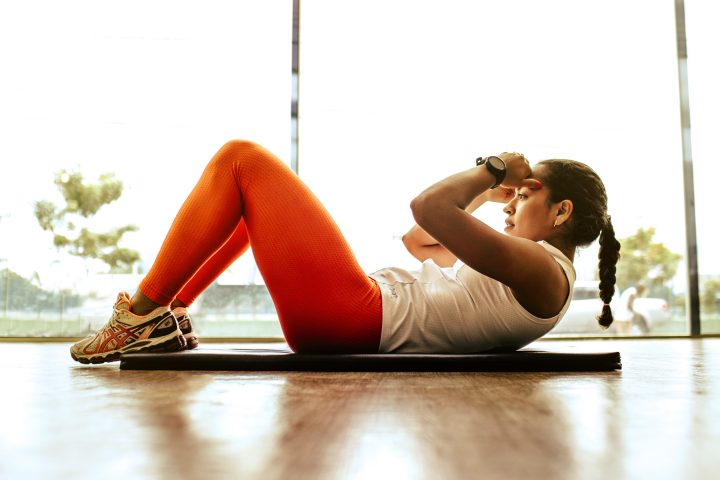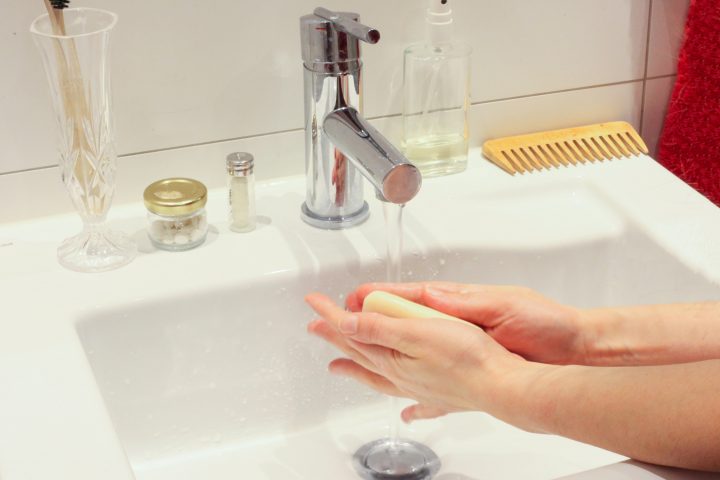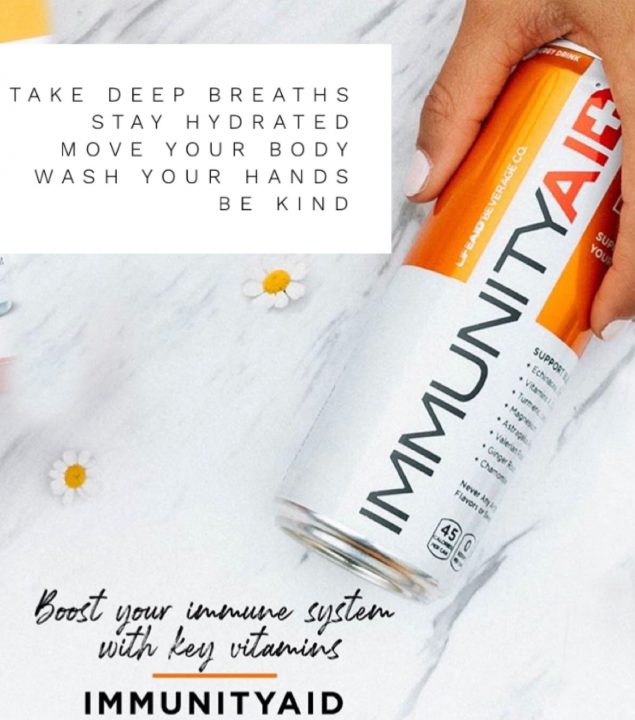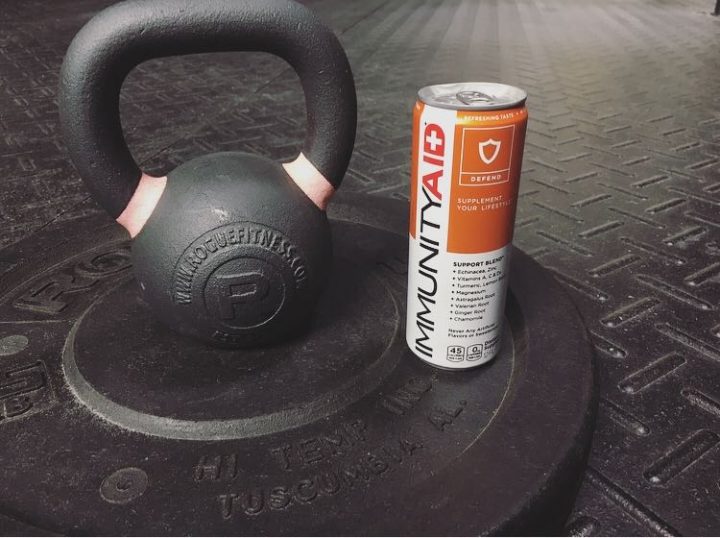Featuring Dr. Nick of @thefittestdoc and Aaron Hinde, co-founder and president of LIFEAID®
What’s stress got to do with it? Can’t I just double up on vitamins to stay healthy? With the expertise of Dr. Nick, MD, also known as “The Fittest Doc,” alongside co-founder and president of LIFEAID® Aaron Hinde, we are debunking some of the top immunity myths while providing health tips that will actually help keep your immune system firing on all cylinders.
1. STRESS IS UNRELATED TO IMMUNE SYSTEM HEALTH
“It is important to try to reduce anxiety in order to keep your immune system working at maximum capacity. Chronic stressors like a stressful job or home life or even persistent non-transient states of anxiety...tend to cause an inflammatory state physiologically and a persistent depression of our own ability to fight off infection,” says Dr. Nick.
TIP: If you are feeling anxious, try meditating or practicing breathwork exercises to help reduce stress. Dr. Aaron Hinde, says “My daily life at LIFEAID can be hectic, so I’ve created a morning routine practicing breathwork and meditation to help me stay calm and grounded throughout the day.”
BONUS: Here is a simple breathwork exercise that you can do anywhere:
- Get into a comfortable position
- Place your hand on your chest and your other hand on your belly
- Take a deep (belly) breath in while counting to five in your head.
- Pause, then slowly and fully exhale your breath.
- Repeat for a few minutes, until you feel calm & relaxed.

2. MYTH: EXERCISE LOWERS YOUR IMMUNE SYSTEM
“From the research that I’ve seen, exercise is no different than any other stressor,” says Dr. Nick. “Transient stressors involving family, work and even exercise have been shown to be associated with strengthening the immune system.” Moving the body will release endorphins — the ‘feel good hormone’ — which reduces cortisol levels and thus improves your immunity response.
TIP #1: Go for a 15-minute walk outside to release endorphins and reduce stress. (You will also be getting the added benefit of absorbing Vitamin D from the sun.)
TIP #2: If you are not feeling well, skip the gym. “Self isolate to keep others safe,” says Dr. Nick. “Even though you may know what health issues you have, you have no idea what other people at the gym have.”
 3. MYTH: HAND SOAP IS MORE EFFECTIVE THAN HAND SANITIZER
3. MYTH: HAND SOAP IS MORE EFFECTIVE THAN HAND SANITIZER
“If hand sanitizer has 60 percent of alcohol or higher, then it can be just as effective as washing your hands with soap, if applied properly,” according to Dr. Nick.
TIP #1: Make sure to wash hands for at least 20 seconds. Many germs live underneath the fingernails, Dr. Nick recommends putting soap on the palm of one hand and cleaning your nails of the opposite hand by lighting scratching the soapy palm.
TIP #2: For maximum effectiveness, coat your entire hand (front and back) when using hand sanitizer, then let it air dry.
4. MYTH: THE MORE VITAMINS & SUPPLEMENTS THE BETTER
There is no proof of the added benefits from consuming extra vitamins and supplements (above & beyond the daily recommended amounts), unless your body is nutrient deficient. However, if you aren’t consuming a diet high in fruits and vegetables, you may need to look for an extra immune boost from supplementation
Dr. Nick also adds, “There is no solid evidence that vitamins like echinacea, zinc and vitamin C effectively treat the common cold; However, there is absolutely some data showing there is a significant decrease in illness duration if taken before onset of symptoms.”
TIP: Need a boost? Try IMMUNITYAID. The IMMUNITYAID Wellness Blend delivers key vitamins and nutrients to naturally help boost your immune system, with 20x more Vitamin C than one orange, plus other natural ingredients like Echinacea, Zinc & Astragalus Root in every can. IMMUNITYAID is the simple and delicious way to get your vitamins and stay defended, with only 40 calories and a refreshing Orange Burst flavor kids & adults love!

- You can learn more about IMMUNITYAID or order online & stock up now at: www.lifeaidbevco.com
- Be sure to follow Dr. Nick, MD, @thefittestdoc and Aaron Hinde at @aaronhinde on Instagram.
- Click here to watch the full interview with Dr. Nick and Aaron Hinde in which they discuss health, wellness and the Coronavirus in more depth.
> > > Be well.
Written by travel blogger Tiffany Ammerman • Images courtesy of: @crossfitonevalley & @jakehoneycuttphoto
We all know that going to the gym to stay active and fit is super important for our physical and emotional well-being, but many of us forget about the potential for picking up illnesses in communal spaces like the local CrossFit box or the community yoga studio. During your next sweat session consider some of these immunity boosting tips to keep your future trips to the gym germ-free.
1. Drink Immunity Boosting Drinks
Often forgotten, drinking immunity boosting drinks such as turmeric shots, IMMUNITYAID, or apple cider vinegar can give your body the extra line of defense it needs to keep you nice and healthy while you’re working out. Helping to deliver an extra boost to your immune system, turmeric is also a good anti-inflammatory and antioxidant, helping you recover from your workouts faster! The last thing you want is to have a bad cough that derails your PR attempts. Taking care of your body from the inside out is the first step to whole-body wellness.

2. Wipe Down Your Equipment
Whether you’re working with kettlebells or a yoga block, wiping down your equipment with an alcohol based sanitizer is a must. Forgetting can be easy when you’re leaving your CrossFit class in a post-WOD haze but cleaning your equipment is not only good for you, it’s also respectful to others who use the same wall balls and dumbbells. Germs can really proliferate on unclean equipment surfaces causing an illness to spread quickly through your local fitness center. Help keep sickness at bay by cleaning your (or other’s) gym equipment!
3. Drink Plenty of Water
We all know that drinking water is key to enhance your athletic performance but being well hydrated can also help your body in it’s defense against illnesses. Having a hydrated body can keep toxins from building up as well as assist in moving oxygen to your cells which could help with keeping your immune system functioning properly.
4. Don’t Come to Class If You’re Sick
Thinking a good sweat session is going to kick your cold? Staying home when you’re sick can greatly reduce how many people you pass it to as well as your recovery time. Your body needs rest to fight off those germs and giving it something else to repair will only increase the time that you’re ill. Take the day off! Everyone, including your body, will thank you.

5. Take Care of Your Own Equipment
Washing your own wrist wraps, yoga mat, knee sleeves and weight belt will keep you and your gym bag healthy and clean. So next time you’re finishing up a workout, throw your stuff in the washing machine rather than in the back of your car. Not only will it keep nasty things such as staph from growing on your equipment, but it’ll smell better, too.
CONCLUSION
Next time you’re at your local gym, try to take some of these tips along to help with keeping illnesses from taking root in your workout community. Not only will your fellow athletes be happy and healthy but so will you!
Cover image: Delanie, Gracie, Tiffany & Alexis Wade: @dwade556 | @gracie9421 | @alexis_wade99
Last image: Chase Hill | @chill_365
About the Author:
Georgia native Tiffany Ammerman is the thru-hiker and CrossFitter behind the travel blog The Goodish Traveler. She spends the majority of her time traveling, eating sushi and searching for hiking trails. When she's not blogging, Ammerman can be found training at CrossFit LaGrange and teaching art to kids.
> > > Live well.
New research uncovers fresh evidence to suggest that frequent exposure to negative emotions may have an important impact on the functioning of the immune system.
Do you often feel sad or angry? This could affect how your body reacts, researchers warn.
Many studies have shown that chronic exposure to stress, anxiety, and negative moods generally can affect physical health to a large extent.
As Medical News Today reported only last year, researchers have found that chronic stress has a negative impact on memory.
Also, feelings of distress can raise the risk of cardiovascular events, such as stroke.
Now, a study conducted by specialists from Pennsylvania State University in State College has found that negative moods may change the way in which the immune response functions, and they are associated with an increased risk of exacerbated inflammation.
The results of the research — which was led by Jennifer Graham-Engeland, an associate professor at Pennsylvania State University — appear in the journal Brain, Behavior, and Immunity.
Negative moods and inflammation
The scientists collected the data for the study via a two-tiered approach. They used questionnaires that asked participants to record their feelings over time and in the moment. These assessments took place over 2 weeks and allowed the team to map out the participants' emotional profiles.
The scientists also assessed the immune response of the volunteers by collecting blood samples from them and looking for markers of inflammation.
Inflammation occurs naturally, as part of the immune response, when the body reacts to infections or wounds. However, high levels of inflammation are associated with poor health and a range of chronic conditions, such as arthritis.
Graham-Engeland and team noticed that individuals who experienced negative moods several times per day for extended periods of time tended to have higher levels of inflammation biomarkers in their blood.
The scientists also note that if they collected blood samples from participants soon after they had experienced a negative emotion such as sadness or anger, inflammation biomarkers were all the more present in the blood.
However, experiencing positive moods — even for a short while before the collection of a blood sample — was associated with lower inflammation levels. However, this was only true for male participants in this study, the investigators specify.
'Affect is modifiable'
The scientists are confident that their study adds crucial evidence regarding the impact of negative affect on health — especially since their participants belonged to diverse ethnic, racial, and socioeconomic backgrounds.
Nevertheless, they caution that to confirm these findings, they will need to replicate them in further studies. They point out that the recent research was the first to explore the link between both momentary and long-term mood reports and measures of inflammation.
"We hope that this research will prompt investigators to include momentary measures of stress and affect in research examining inflammation, to replicate the current findings and help characterize the mechanisms underlying associations between affect and inflammation," explains Graham-Engeland.
In the future, they hope that this and similar studies may allow specialists to come up with better strategies to improve mood and thus protect aspects of physical health.
"Because affect is modifiable, we are excited about these findings and hope that they will spur additional research to understand the connection between affect and inflammation, which in turn may promote novel psychosocial interventions that promote health broadly and help break a cycle that can lead to chronic inflammation, disability, and disease."
—Jennifer Graham-Engeland
Source: Medical News Today
— Published
For information about the IMMUNITYAID Support Blend which contains essential vitamins and clean ingredients your body's immune system needs to stay defended daily, visit our product page here.
> > > Live well.
The holiday season is upon us, and with it comes plenty of crowded planes, trains & automobiles!
Dr. Allison Brager tells us about the clean, active ingredients in ImmunityAid which can help boost your immune system.
I travel often for my profession, and I travel across many time-zones, so I know firsthand about “jet lag”. I have studied jet lag and its many awful side effects in the lab. In these studies, I mimicked worldwide travel in rodent models in order to study the effects on the brain, physiology, and genetics. From these studies, I've found that the rodent brain is overactive even seven days after a bout of travel. These animals were also more prone to sickness and had lots of inflammation. Sure these are rodents, but there is actually a lot of symmetry in the brain and physiology between mice and men.
I was very pleased to see that the active ingredients in ImmunityAid are plant-based medicines that have been widely studied and utilized in recent years to ameliorate jet lag.
Three of these ingredients have been widely studied in neuroscience and are thought to be essential for protecting the brain against neurodegenerative disorders: Turmeric, Valerian Root and Ginger. Each has a unique contribution to neuroscience research.

TURMERIC:
Turmeric is a major export of India and is found in many curries. Its cultivation is dependent on heavy rainfall, which lends support to its biochemical significance. The active ingredient of turmeric is curcumin. Curcumin is a very attractive antioxidant candidate in Alzheimer's research. It suppresses certain genes and biological factors that are increased in expression with stressors such as time-zone jet lag.
VALERIAN ROOT:
The biochemical powers of Valerian root have been known for many centuries. It has been widely recognized as a hypnotic (i.e. sleep-promoting agent) and anxiolytic (i.e. anxiety-alleviating agent). It is so biochemically powerful because it increases activity in one of the major inhibitory systems of the brain, fine-tuning the system and ensuring that the system does not overreact to stress.
GINGER:
Ginger (much like turmeric) is thought to be an antioxidant and anti-inflammatory. It has been widely studied in the treatments of nausea and arthritis—two conditions that can be exacerbated by travel.
To conclude, I have spent ten years studying why and how animals adapt to stress in their environment. The science fascinates me but practical application of this science fascinates me even more. We know travel is inevitable and necessary for many professionals and athletes.
So, what can you do to reduce risks of sickness when traveling? Drink ImmunityAid, to start.

—Dr. Allison Brager, Neuroscientist
Source: Original June 20, 2016 product review
> > > Live well.
